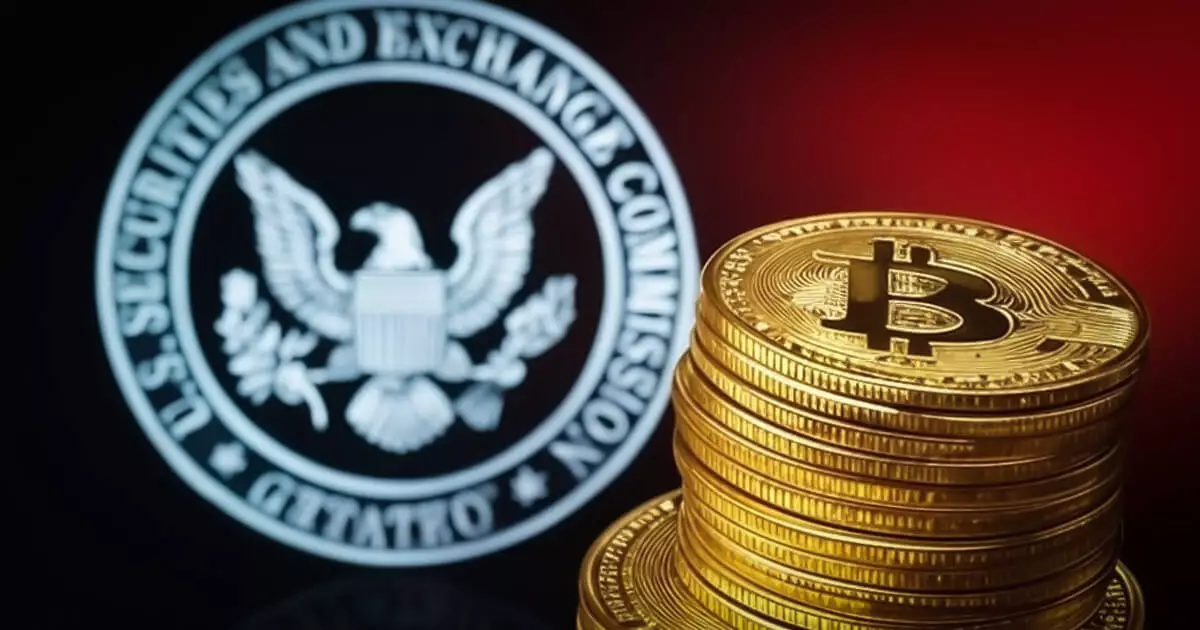In a pivotal move for the cryptocurrency landscape, the U.S. Securities and Exchange Commission (SEC) has announced the establishment of a specialized task force specifically focused on the regulation of crypto assets. This initiative, led by Commissioner Hester Peirce, known colloquially as “Crypto Mom” for her advocacy of blockchain technologies, represents a significant shift in the SEC’s approach to digital currency oversight. By prioritizing a comprehensive regulatory framework, this task force aims to bring clarity to an industry characterized by rapid innovation and ongoing uncertainty.
The formation of the crypto task force comes in the wake of widespread criticism surrounding the SEC’s traditional enforcement-centric approach. Historically, the commission has relied on enforcement actions, often perceived as retroactive and overly reactive, leading to considerable confusion among innovators and investors alike. By focusing predominantly on legal violations after the fact, the SEC inadvertently fostered an environment that stifled innovation due to fear of potential repercussions.
With this new initiative, Acting Chairman Mark Uyeda has expressed a vision for a more constructive regulatory posture. The goal is to delineate clear regulatory boundaries that establish practical registration processes and create a balanced framework for disclosure. Such an approach aims not only to protect investors but also to nurture a market where compliance and innovation can thrive hand in hand.
The SEC’s announcement also highlights a shift in resource allocation, stating an intention to deploy enforcement tools more strategically. Rather than engaging in broad enforcement actions, the task force will focus on clear violations demonstrating significant risk to investors. This approach suggests a more nuanced understanding of the unique dynamics at play in the cryptocurrency market, acknowledging that not all innovative financial activities warrant punitive measures.
Additionally, collaboration appears to be a cornerstone of the task force’s mandate. The SEC intends to coordinate with various stakeholders, including federal and state agencies, and aims to align U.S. regulations with international standards. This cooperative stance reflects an acknowledgment of the global nature of cryptocurrencies and the necessity of a harmonized approach to regulation to effectively address the challenges posed by digital assets.
Beyond regulatory enforcement, the task force will also engage with lawmakers to provide technical assistance and insights as they contemplate updates to existing legislation governing digital assets. This proactive approach fosters a dialogue between the regulatory body and Congress, ensuring that legislators have access to the essential information needed to shape effective policies.
Commissioner Peirce emphasized that the success of this task force hinges on inclusivity and collaboration with a diverse range of stakeholders, including investors, industry representatives, and academic experts. This broad-based engagement promises to yield a well-rounded perspective on how best to navigate the evolving landscape of cryptocurrencies and blockchain technologies.
Despite the absence of direct remarks on crypto during President Donald Trump’s inaugural speech, his administration has seen nominations of individuals with pro-crypto views into pivotal regulatory roles. The appointment of Paul Atkins as the new SEC chair and David Sacks as the nation’s first “crypto czar” underscores a policy direction supportive of crypto innovation.
As these changes unfold, the emphasis placed on creating a regulatory environment conducive to innovation could catalyze a new wave of investment and technological development within the digital currency space. The intent is clear: to refine how cryptocurrencies operate within the legal framework while simultaneously promoting a culture of compliance and innovation.
The SEC’s formation of a dedicated crypto task force marks a significant juncture in the regulatory approach to digital assets. By fostering clarity, cooperation, and a more proactive stance toward compliance, the task force sets the stage for a robust and innovative future for cryptocurrencies in the United States. The success of these efforts will ultimately depend on genuine collaboration among all stakeholders—governing bodies, industry participants, and consumers alike.
















Leave a Reply